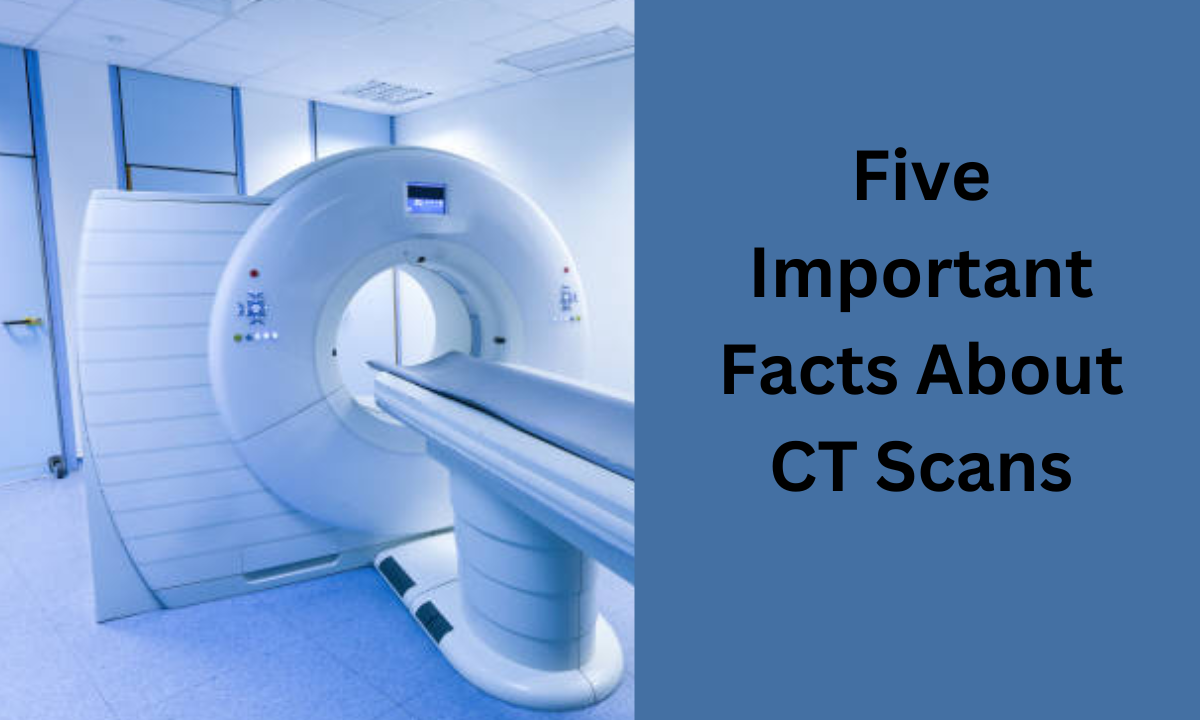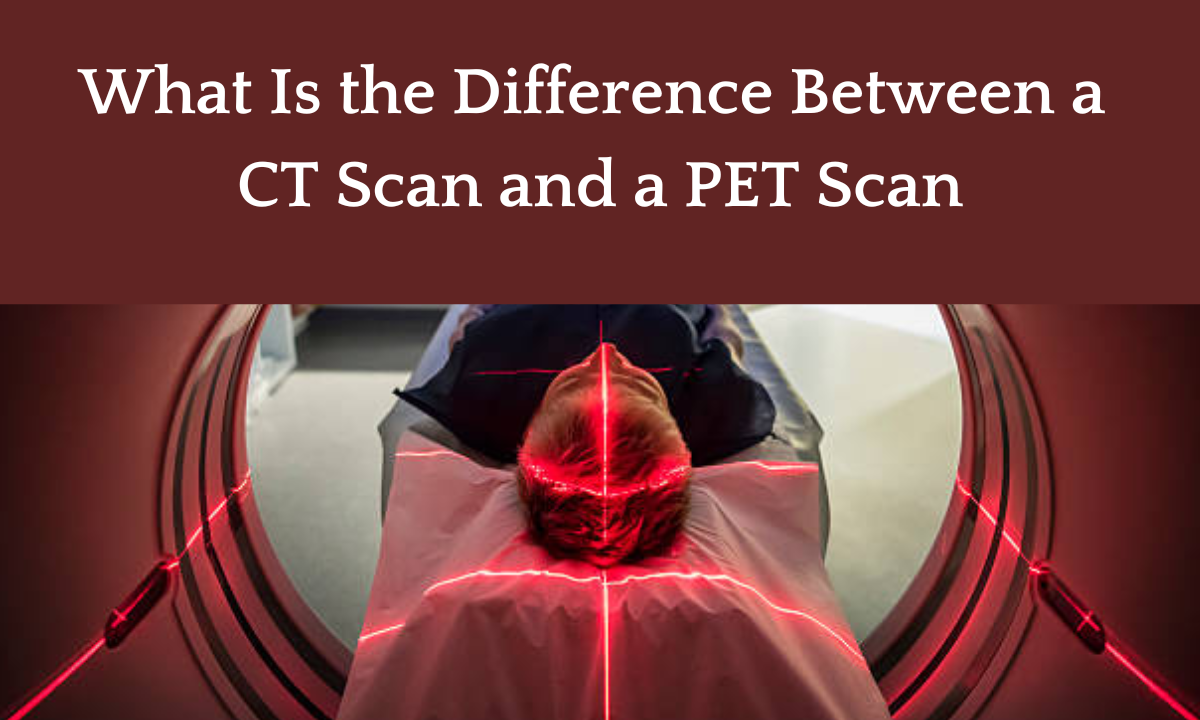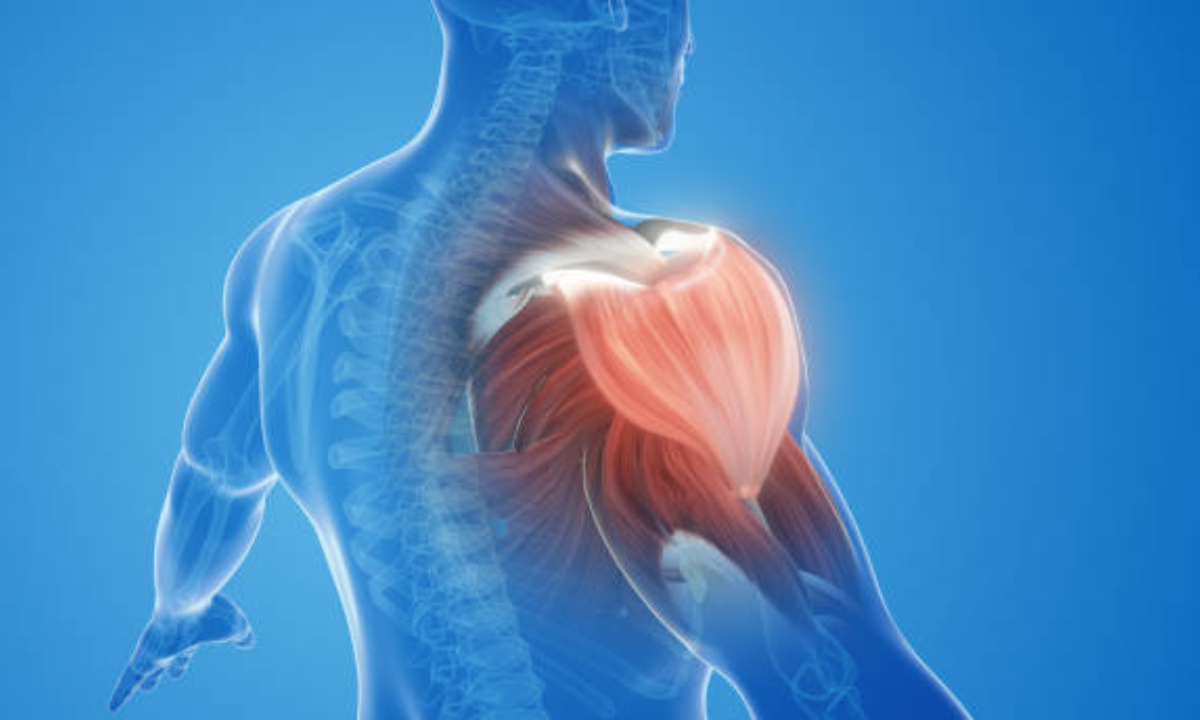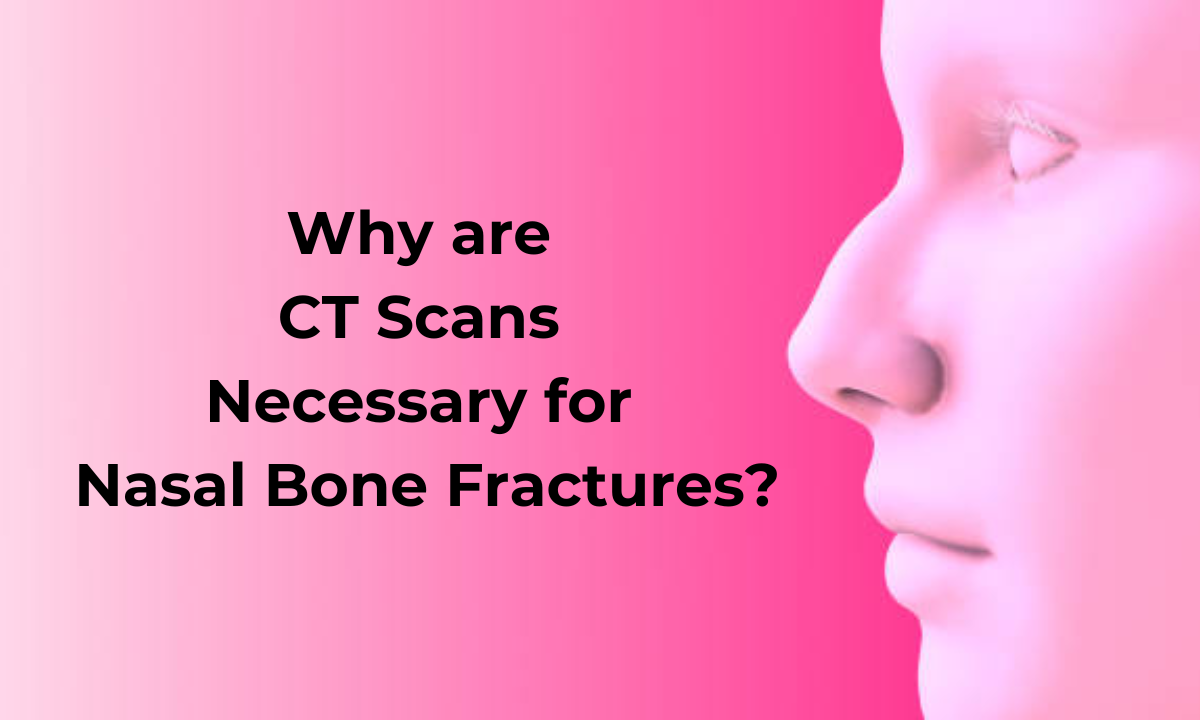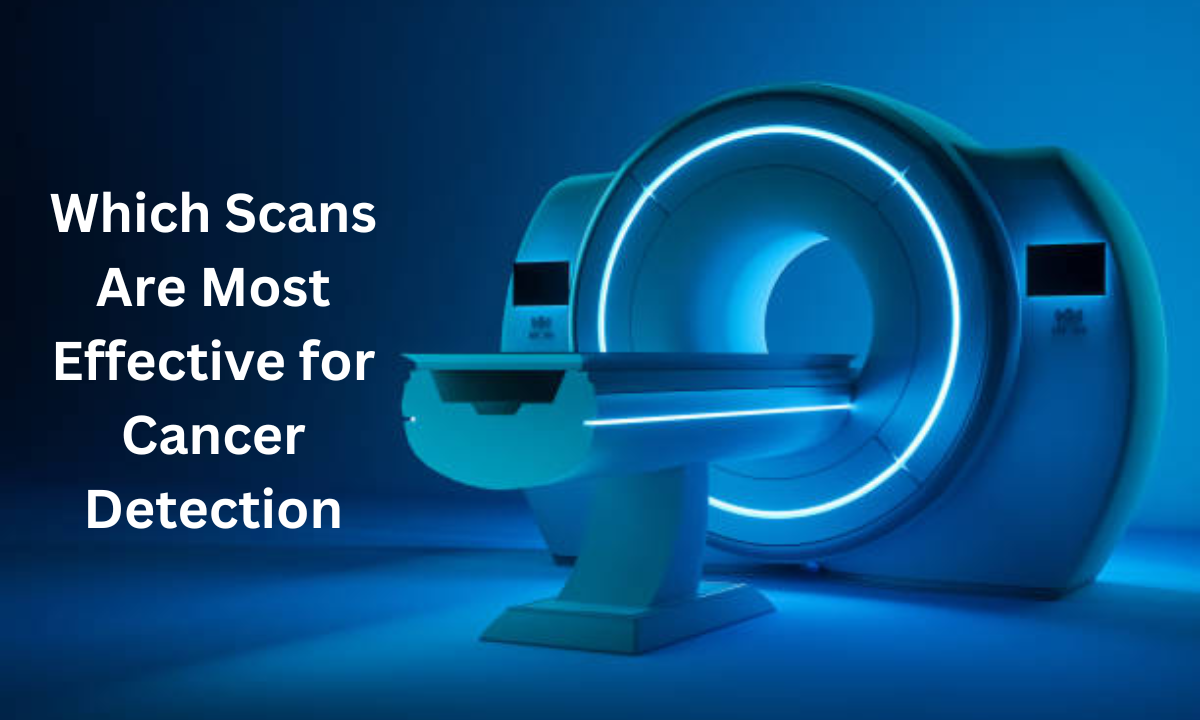CT or computed tomography scans are sophisticated diagnostic methods that create comprehensive images of various body regions. Using traditional imaging techniques, CT scans can detect multiple illnesses and abnormalities that might otherwise go undetected. CT scans provide crucial information for precise diagnoses and treatment procedures, ranging from fracture and cancer detection to the examination of internal damage.
This essay will look at CT scan capabilities and the different types of illnesses that can be discovered. CT scans are critical in modern medicine for detecting early cancer symptoms, diagnosing blood vessel blockages, and assessing organ function, such as the heart and lungs.
Furthermore, assessing CT scan price is significant, as it affects accessibility to this vital diagnostic tool.
How do CT scans work?
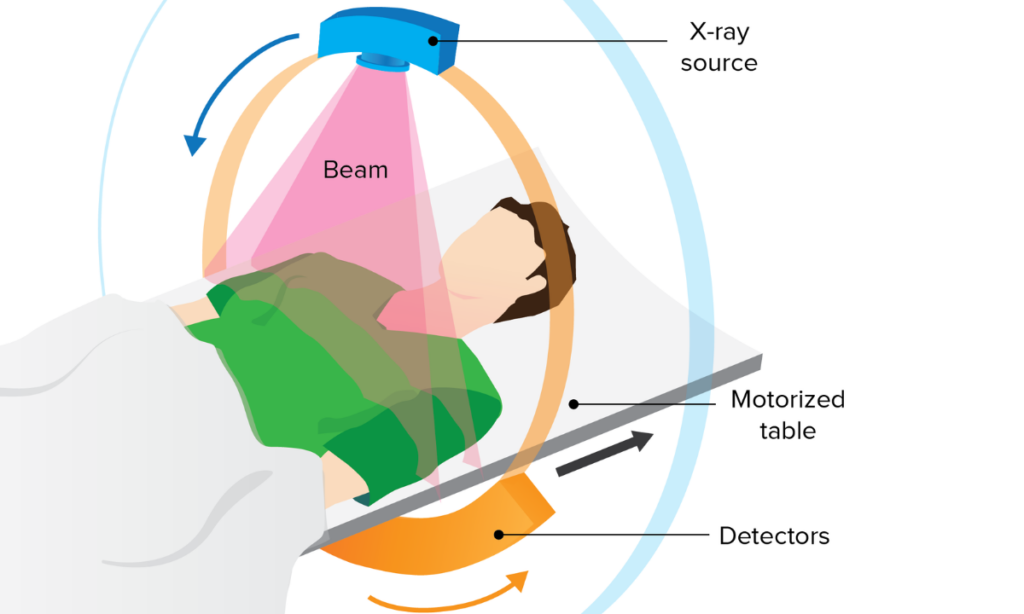
Understanding how CT scans work is critical to determining what information they can disclose. CT scans use X-rays and computer processing to produce detailed cross-sectional pictures of the body. The procedure begins with the patient lying on a table that slides within a cylindrical device. This device has an X-ray tube spins around the subject, producing X-ray photons at various angles.
As X-ray radiation passes through the body, different tissues absorb them to varying degrees. Specific detectors recognize X-rays passing through the body and convert the data into electrical impulses. A computer interprets these signals to provide detailed images of the body’s interior architecture.
For individuals seeking CT scans in Bangalore, finding a nearby CT scan center is essential for convenient access to this invaluable diagnostic tool.
CT scans for detecting tumors and cancer.
CT scans have revolutionized the battle against cancer. These scans work like strong headlights, allowing doctors to peek inside your body and discover things regular X-rays cannot. This helps them to detect tumors and other anomalies that may indicate malignancy.
CT scans are pretty beneficial in detecting cancer early on. Imagine making a detailed map of your rooms. These scans display your organs, bones, and tissues in stunning detail. This thorough picture assists doctors in identifying any abnormal growths or tumors that may be malignant. Furthermore, they can adequately evaluate the size and location of these tumors, which is vital in determining the most effective treatment approach.
CT scans are used to evaluate blood vessels and heart conditions.
CT scans are also helpful in examining blood arteries and cardiac problems. CT angiography, which uses contrast materials, can produce detailed images of blood veins throughout the body. CT scans can highlight blood veins by injecting a contrast material into a vein, resulting in visible images.
This technique is very beneficial for detecting blockages or narrowing of blood arteries, known as stenosis. CT angiography can detect arterial plaques, blood clots, and other disorders that disrupt blood flow. These images can be used to guide procedures, such as angioplasty or stent implantation, to restore correct blood flow and avoid problems like heart attacks or strokes.
Cardiac CT scans produce comprehensive images of the heart’s architecture, allowing doctors to diagnose diseases like coronary artery disease, congenital heart anomalies, and heart valve abnormalities. These scans can also help decide the best course of action, whether medication, lifestyle changes, or surgical procedures.
CT scans for identifying infections and inflammation.
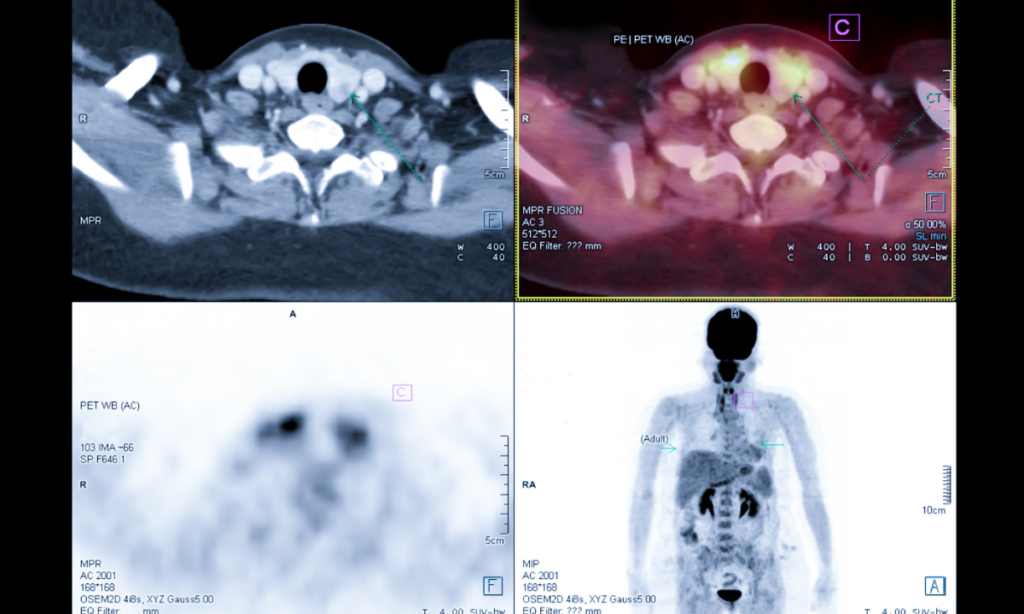
CT scans can help to detect infections and inflammation in the body, as well as structural abnormalities. CT scans provide complete images of the affected areas, assisting in the diagnosis and monitoring of disorders such as sinusitis, pneumonia, abscesses, and inflammatory bowel disease.
CT scans, for example, can aid in confirming the diagnosis of probable appendicitis by detecting inflammation in the appendix. These scans can also detect infections in other parts of the body, such as the lungs or kidneys, allowing doctors to begin appropriate therapy as soon as possible.CT scans can also help guide therapies such as image-guided biopsies and abscess drainage. These scans enable medical workers to administer precise medicines by accurately pinpointing the site of infection or inflammation, lowering risks and increasing outcomes.
Risks and limitations of CT scans
CT scans are useful diagnostic tools, but they do not come without risks and limitations. Using ionizing radiation in the form of X-rays exposes the body to a low dose of radiation during the scan. Although the radiation dose is typically considered tolerable, repeated exposure may increase the risk of cancer in the long run.
Medical professionals carefully assess the need for CT scans in order to minimize the risks associated with radiation exposure. They weigh the scan’s potential advantages against the risks, particularly in circumstances where alternative imaging modalities, such as ultrasound or MRI, may be equally beneficial.
Another drawback of CT scans is the use of contrast materials, which can cause allergic reactions or other undesirable outcomes in certain people. Before undergoing a CT scan with contrast, patients are checked for allergies or diseases that may increase their risk of complications.
Conclusion
CT scans are useful tools in modern medicine because they provide comprehensive images of the body’s structures that may be used to diagnose and treat a variety of illnesses. CT scans provide a window into the human body, allowing medical practitioners to make correct and educated judgments.
While CT scans have transformed medical imaging, it is critical to understand the dangers and limitations associated with their usage. Medical professionals carefully assess the possible advantages against the hazards, ensuring that CT scans are used sparingly and only as needed. Choosing the best diagnostic center in Bangalore ensures not only quality services but also competitive CT scan prices, making diagnostic solutions more accessible to those in need.
Kiranpet Diagnostic Centre offers comprehensive medical imaging and diagnostic services, providing accurate and timely results to support patient care.


